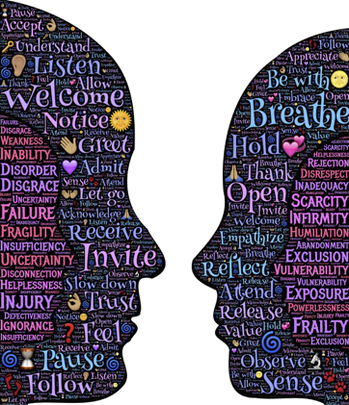 Have you ever noticed that when you confront someone with facts that challenge their deeply held beliefs, rather than changing their minds they often dig in their heels? In a series of experiments by Dartmouth College professor Brendan Nyhan and University of Exeter professor Jason Reifler, the researchers identified a factor they call the Backfire Effect “in which corrections actually increase misperceptions among the group in question.” Why? “Because it threatens their worldview or self-concept.” If corrective facts only make matters worse, what can we do to persuade people who seem immovable? (Tweet it!) Michael Shermer, writing in the “Behavior and Society” column of Scientific American suggests: 1. keep emotions out of the exchange; 2. discuss, don't attack; 3. listen carefully and try to articulate the other position accurately; 4. be respectful; 5. acknowledge that you understand why someone might hold that opinion; and 6. try to show how accepting facts does not necessarily mean changing one’s worldview. What strategies do you employ when trying to persuade someone who does not share a common set of facts with you? Have you had any successes? To join the conversation, click "comments" above. If you would like to read more about creating a habit around communication mastery, check out our book: Be Quiet, Be Heard: The Paradox of Persuasion.
4 Comments
 We've all had moments where a discussion is poised on the brink of an argument. Do we really want to go there? If not, we might think about the future. Thinking about the future helps us take a step back from the emotional conflict moment, and place negative events in context (Tweet it!). Writing about his own study in the Harvard Business Review Alex C. Huynh, a social psychology researcher at the University of Waterloo, Canada, says, “We found that participants who thought about the future expressed [cognitive reasoning strategies versus impulsive emotion] more than those who were focused on the present moment.” What psychologists are verifying is something long known to philosophers. As Confucius said, “When anger rises, think of the consequences.” Imagine what the conflict might mean to you in a week, a month, a year.” What strategies do you use to try to defuse an argument? Do you ever find yourself considering the future? To join the conversation, click "comments" above. If you would like to read more about creating a habit around communication mastery, check out our book: Be Quiet, Be Heard: The Paradox of Persuasion.  At some point, from about middle school onward, many of us have longed to be “popular.” But what does that really entail? There are two kinds of popularity, says Mitch Prinstein, a professor and director of clinical psychology at the UNC Chapel Hill, in his forthcoming book, Popular: The Power of Likability in a Status-Obsessed World. Prinstein sorts the popular into two types: “likables” and “status seekers” (http://nyti.ms/2o0cp84). The likables nurture friendships, and cultivate interpersonal skills from the playground years through business and romance. The “status seekers” pursue power, sometimes through notorious behavior, from adolescence onward. These “cool kids” don't fare so well. In one study, Prinstein examined the two types of popularity in 235 adolescents, scoring the least liked, the most liked, and the highest in status based on student surveys. “We found that the least well-liked teens had become more aggressive over time toward their classmates. But so had those who were high in status. It was a nice demonstration that while likability can lead to healthy adjustment, high status may have the opposite effect on us.” Prinstein also found that qualities that made kids desirable play dates — sharing, kindness, openness — endure in later years and make those likables better able to relate to and connect with others. Not only does likability correlate with positive life outcomes, it is also responsible for them (Tweet it!). “Being liked creates opportunities for learning and for new kinds of life experiences that help somebody gain an advantage.” Do you remember the high status “cool kids” from your youth? Do you know where they are now? What about the likeable ones? To join the conversation, click "comments" above. If you would like to read more about creating a habit around communication mastery, check out our book: Be Quiet, Be Heard: The Paradox of Persuasion  The workplace, says New York Times Applied Science columnist Phyllis Korkki, can be “a petri dish of conflict”. And some of these conflicts have the potential to escalate out of control. In many instances people feel slighted or even victimized. But, as it turns out, most of the transgressors themselves contend they meant no harm and “wanted to be forgiven much more than their victims realized.” Gabrielle S Adams, an assistant professor at the London Business School and a visiting fellow at Harvard, has examined the role that empathy and forgiveness play in resolving such conflicts. Said Adams. “We ask victims to think about what it would be like to be the transgressor, and [we] reduce that miscalibration.” In other words, the mental exercise of putting yourself in the other person’s shoes, a.k.a. empathy, works (Tweet it!). “By making it a point to resolve conflicts by encouraging empathy and forgiveness, workers and managers can improve workplace conditions.” Can you think of a conflict at work when you felt slighted but later discovered “the offender” meant no harm? How did you resolve the misunderstanding? To join the conversation, click "comments" below. If you would like to read more about creating a habit around communication mastery, check out our book: Be Quiet, Be Heard: The Paradox of Persuasion |
Archives
July 2024
Categories
All
|
|
Glaser & Associates, Inc.
Executive Offices 1740 Craigmont Avenue, Eugene, OR 97405 541-343-7575 | 800-980-0321 [email protected] |
© 2019 Glaser & Associates. All Rights Reserved.


 RSS Feed
RSS Feed